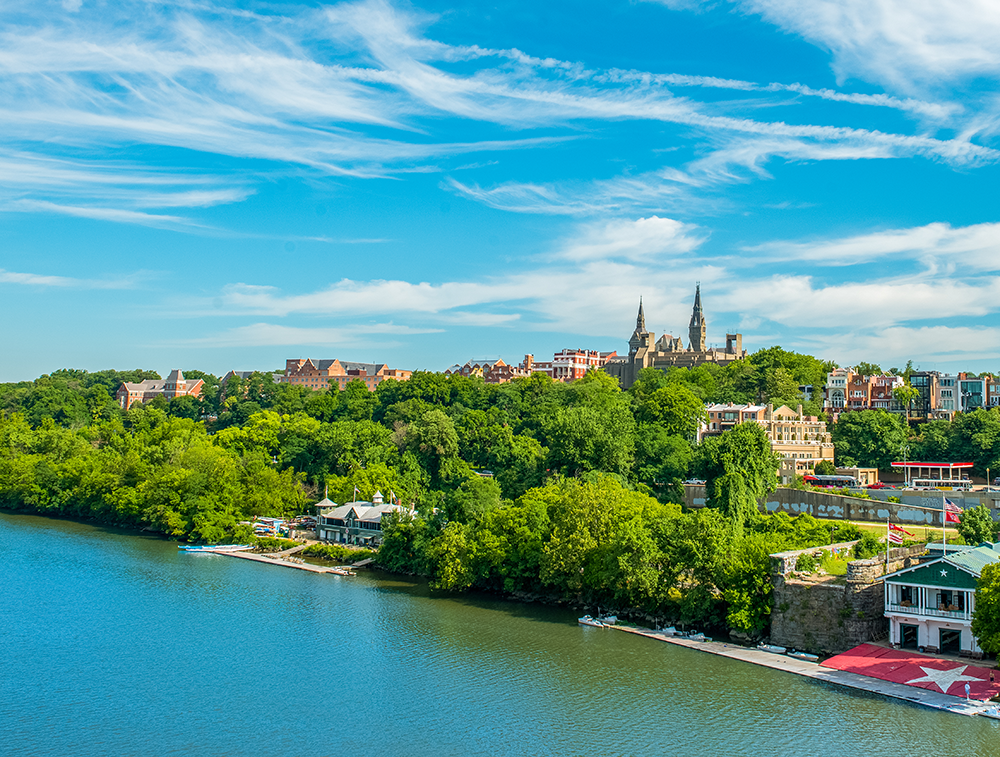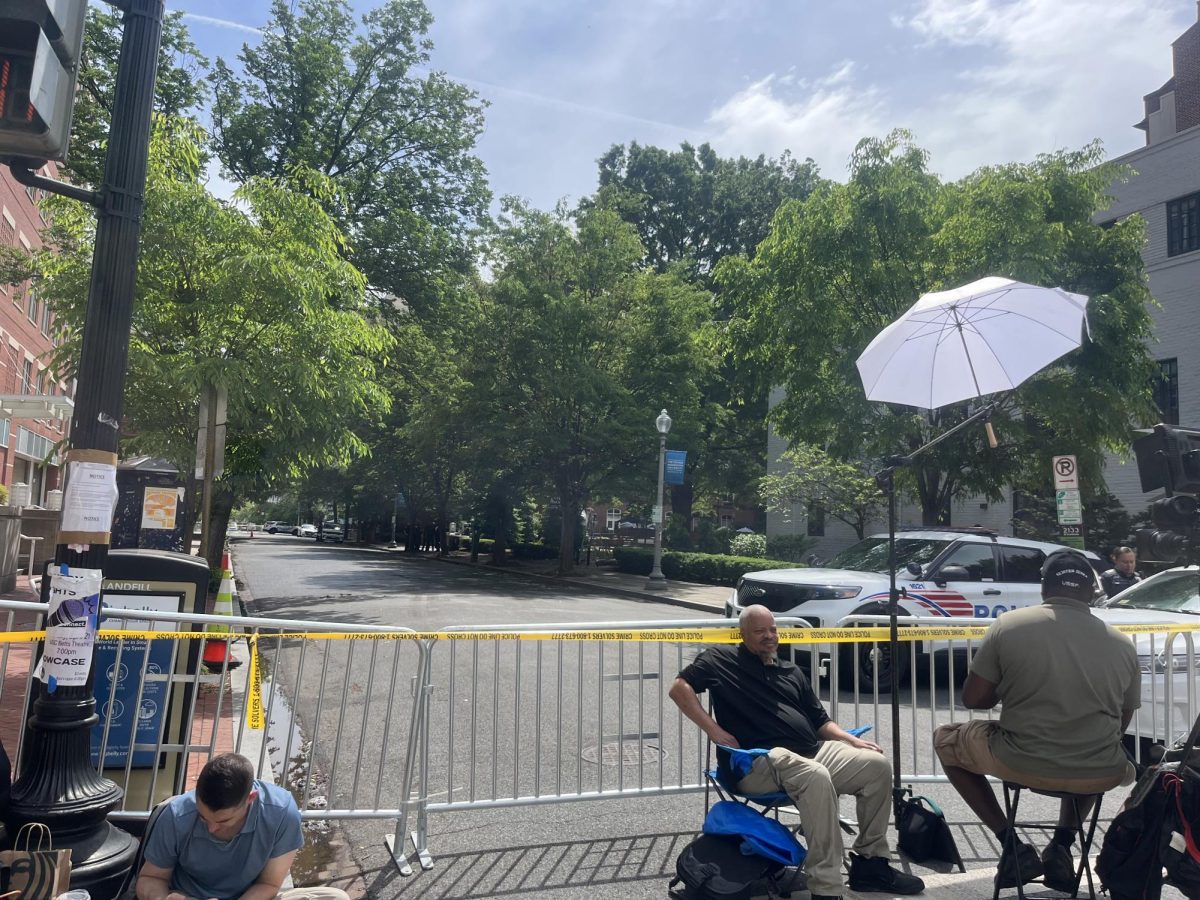Students will vote whether to designate Georgetown a Blue Campus on Feb. 6 after the Georgetown University Student Association Senate passed legislation to put forth a referendum to the student body Jan. 26.
The Blue Campus label would serve as a university pledge to commit to environmental sustainability and protection of ocean habitats. The referendum encourages the university to adopt particular sustainability policies, including investment in renewable energy sources and carbon offset programs, which seek to counteract fossil fuel emissions. The referendum would also call for increased education on environmental sustainability and reduced use of plastics and other possible pollutants.

The referendum will appear on the ballot of the GUSA Executive elections Feb. 6, alongside a separate referendum advocating for the university’s divestment from fossil fuels.
The idea of designating Georgetown as a Blue Campus began in the fall with the creation of the Blue Campus Working Group on Nov. 24, according to GUSA Senator Leo Rassieur (COL ’23), an early advocate for the referendum. Designating Georgetown as a Blue Campus could set a valuable precedent for other universities looking to pursue environmentally friendly policies, according to Rassieur.
“We started this idea of us declaring ourselves to be a Blue Campus and what it would look like to do that, because even though we want this to be a national movement that spreads to other colleges and universities, it’s obviously not something that has ever been defined before, in terms of what specific policies are required,” Rassieur said in an interview with The Hoya.
The referendum is critical to addressing climate change due to its emphasis on ocean preservation, Rassieur added.
“In terms of past environmental policy, especially by the university, there isn’t much attention to the effects of things like ocean acidification or plastic dumping or coral bleaching, and all of the available science suggests that these are things that are accelerating climate change,” Rassieur said.
The Blue Campus initiative will help the university consolidate its patchwork of environmental policies, according to Blue Campus Working Group member Ally Pyne (COL ’23).
“I think the university does a pretty good job of having green and sustainability initiatives, but there’s not one cohesive space, and that’s what the point of the referendum is: to bring initiatives together,” Pyne said in an interview with The Hoya.
The referendum’s first iteration failed to pass the two-thirds majority threshold for referenda at a senate meeting Jan. 20, with 17 senators voting in favor and seven voting against. Six of the dissenting senators, who cited lack of specificity in the original referendum, voted in favor of the renewed referendum, which passed 23-1. The new referendum added new details and slashed unnecessary ones, according to senator Juliana Arias (SFS ’20), who voted against the original referendum but supported the renewed version.
Members of the Blue Campus Working Group added an additional section to the referendum that would create a task force to implement the policies, causing the referendum to appear more feasible, according to Blue Campus Working Group member Rowlie Flores (COL ’23).
“Our referendum is more broad and that’s why we wanted to create a committee to help address the policies we presented,” Flores said in an interview with The Hoya.
The task force would include GUSA senators, members of the student body, and university administrators, according to Rassieur.
During the past decade, the university has worked to implement environmentally friendly policies. In early January, LEO MKT introduced reusable dishware. One year earlier, the Office of Sustainability, created to reduce the university’s environmental footprint, was nominated for a sustainability award.
The referendum previously included policies that would ensure the university’s divestment from fossil fuels, but this section was removed before the new version of the referendum was introduced. The Blue Campus Working Group, however, is still supportive of the idea, according to Rassieur.
“The divestment referendum is a movement that we’re working really closely with, and obviously our values are super aligned because both of our referenda are about getting the university and the student body to take action to preserve the environment,” Rassieur said.
Rassieur also noted the importance of student support, saying that the university was unlikely to act without encouragement from the student body.
“Unless there’s a strong way to measure how much support we have for our policies, like a referendum, then the university won’t act,” Rassieur said. “Hopefully if we get the support that we want on this referendum vote then we’ll have the momentum we need to really accelerate this talk about climate change, because we really don’t have time to keep waiting around on these policies.”




















